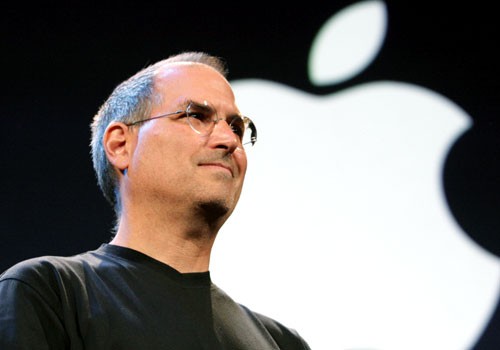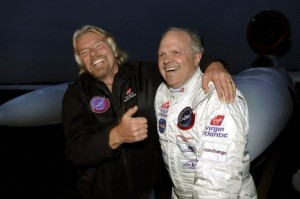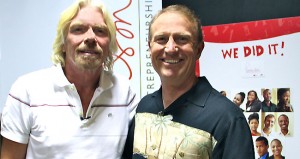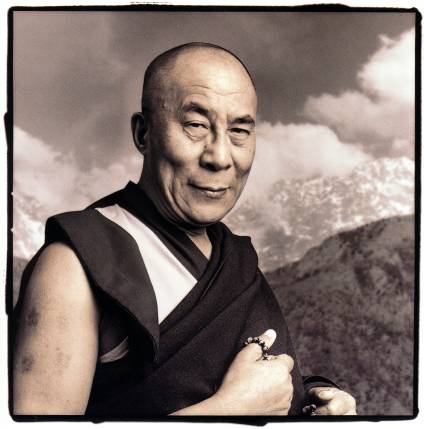

 e probably putting in more effort than you’re charging for and you might even volunteer to do it.
e probably putting in more effort than you’re charging for and you might even volunteer to do it.

 e probably putting in more effort than you’re charging for and you might even volunteer to do it.
e probably putting in more effort than you’re charging for and you might even volunteer to do it.DOUBLE YOUR VALUE…TO CUSTOMERS & YOUR BOSS.
 creativity, adventure and necessity finally outweigh fear, complacency, poverty, and outside criticism.”
creativity, adventure and necessity finally outweigh fear, complacency, poverty, and outside criticism.”Early in his career, Steve was disengaged from his work and life. He was a frustrated wage-slave but he broke free and built a new life and his own successful financial services business. He went on to attempt world titles in five sports, failing plenty of times; but ultimately he set 116 records—more than any other human being in history!
What you may not know is Steve and many of the world’s most successful people have felt overwhelmed in their lives—they’ve all experienced great frustration or fear of the risks necessary to do anything that really matters.
There is a cure: Taking Action. You will Double Your Value (or more!) to the people who matter to you when You Ask What Can Do to make a difference. Most people want to make a meaningful impact, but get stuck along the way. In this book, Mark, Bonita, and Marshall reveal powerful strategies from their latest research that will help you make it happen. Read it and then go try it.
to you when You Ask What Can Do to make a difference. Most people want to make a meaningful impact, but get stuck along the way. In this book, Mark, Bonita, and Marshall reveal powerful strategies from their latest research that will help you make it happen. Read it and then go try it.
In the midst of an interview with Never Eat Alone author Keith Ferrazzi, I asked what he had to say about life balance. Ferrazzi didn’t hold back: “Balance is bull!” he asserted. “Wrong answer!” the voice in your head is likely to reply.

So, what does research have to say on the matter? Basically, the notion that balance should be defined by a time-allocated pie chart, giving equal proportions to ‘family’, ‘self’, ‘work’, etc. (carrying the Good Housekeeping seal of approval) –doesn’t work– at least not for those of the world’s most successful people we’ve interviewed.
Using the typical cultural definition of balance, The Dalai Lama wouldn’t have a balanced life, nor would Nelson Mandela, nor Bono.  Mother Teresa didn’t have a balanced life – and we could go on and on, but you get the idea. The remarkable people we met, many of whom live a life that’s a gift to the world, never raised balance as an issue and it’s because they were all too busy doing what mattered to them.
Mother Teresa didn’t have a balanced life – and we could go on and on, but you get the idea. The remarkable people we met, many of whom live a life that’s a gift to the world, never raised balance as an issue and it’s because they were all too busy doing what mattered to them.

If you’re desperately feeling a need for balance, it may have nothing to do with balance per se, as much as it means that “you’re not getting access to a huge chunk of time to do the things that really matter to you,” said Gordon Moore, a founder of Intel who’s best known for Moore’s Law. Your fixation on balance may actually mean your pie chart needs you to set work at 80%, or kids at 80%, or fishing at 80%–but rarely in comfortable or equal proportions. It might mean you need to create time to be a stay-at-home parent, or refurbishing model Ts without the family around, exploring medieval castles with your pals, or painting homes for Habitat for Humanity.
It might mean you need to create time to be a stay-at-home parent, or refurbishing model Ts without the family around, exploring medieval castles with your pals, or painting homes for Habitat for Humanity.
The point is to determine if it’s a neglected passion that’s driving your hunger rather than a need for balance. When you feel the need for more balance, ask yourself: if you had it, what would you be doing with you time that you’re not doing now? Chances are it’s a sidelined passion that’s making the request. Pay attention–what you probably need is to in fact balance your portfolio of passions. Also be aware that what you’ll actually experience as balance is going to change with the passage of time, and may never look like balance to any other soul.
By shifting your notion of balance, and re-structuring your energy toward your portfolio of passions, you’ll end up doubling your value in the areas you feel most strongly about, driving you closer to the successful, “balanced” life you’ve been yearning for.
As a California native, I was lucky enough to go to and graduate from several of its wonderful public universities (as was my wife, Bonita).
That’s why it’s especially upsetting to hear about the massive cuts to California’s public educations, and even more frustrating to learn that spending on prisons passed spending on universities in 2004 (per an article from the September issue of The Economist).

The dictionary defines the word invest as, “to use, give, or devote (time, talent, etc.), as for a purpose or to achieve something”–the same mission behind education. California has long been a state of entrepreneurs, incredible innovation and a once world-class higher educations system, but by refusing to invest in its future and instead putting money and energy into criminals and the prison system, the state is missing a huge opportunity to multiply its value.

We need to invest–be it monetary or otherwise–in people, places, things, that will create and breed value and ultimately serve us all for decades to come.